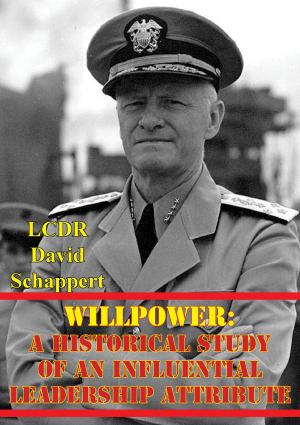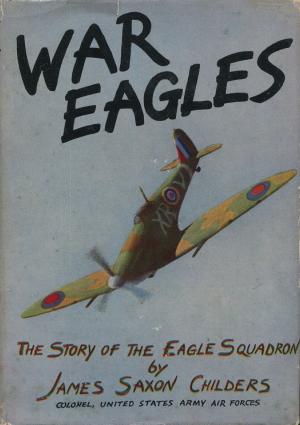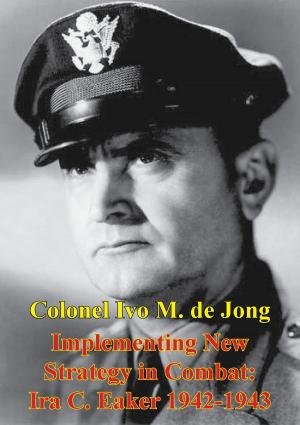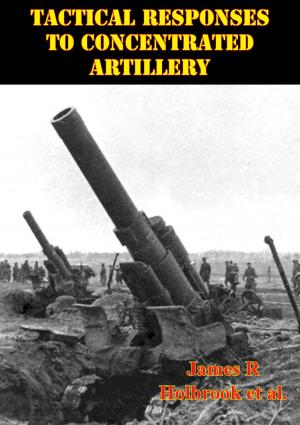Afghanistan And Beyond: Reflections On The Future Of Warfare
Nonfiction, History, Middle East, Persian Gulf War, Military| Author: | Dr Stephen J. Blank | ISBN: | 9781782897668 |
| Publisher: | Tannenberg Publishing | Publication: | August 15, 2014 |
| Imprint: | Tannenberg Publishing | Language: | English |
| Author: | Dr Stephen J. Blank |
| ISBN: | 9781782897668 |
| Publisher: | Tannenberg Publishing |
| Publication: | August 15, 2014 |
| Imprint: | Tannenberg Publishing |
| Language: | English |
Many military analysts believe or fear that the wars of the 1990s will be akin to the wars in the former Yugoslavia: small-scale but long-lasting and recurrent ethnic wars that also elude easy international resolution. There are consequently well-founded concerns about prospects for deployment of U.S. forces there in a unilateral or U.N. capacity. Some of the lessons of this kind of war were already apparent in the wars of the 1980s. They were known then as low-intensity conflicts and now as operations other than, or short of, war.
This report focuses mainly on lessons from one of the most crucial of these wars, i.e., in Afghanistan as a result of the Soviet invasion in 1979, and attempts to draw lessons that are relevant for current wars, like those in Yugoslavia or the ex-Soviet Union. The purpose is to stimulate analysis and reflection on the strategic and operational, if not also tactical nature of these wars by both analysts and policymakers so that all interested groups can more easily come to terms with a form of warfare that promises to be both deeply destructive and deeply rooted in longstanding political and social antagonisms that cannot be easily or quickly resolved.
Naturally some of the lessons drawn from Afghanistan and other wars may either only apply to Russian and Soviet forces or conversely may apply to war in general. But our primary intention is to make a contribution to the study of future wars particularly of the ethnic and small-scale type that promise to continue in many parts of the globe lest we devise better ways for averting and then resolving them.
Many military analysts believe or fear that the wars of the 1990s will be akin to the wars in the former Yugoslavia: small-scale but long-lasting and recurrent ethnic wars that also elude easy international resolution. There are consequently well-founded concerns about prospects for deployment of U.S. forces there in a unilateral or U.N. capacity. Some of the lessons of this kind of war were already apparent in the wars of the 1980s. They were known then as low-intensity conflicts and now as operations other than, or short of, war.
This report focuses mainly on lessons from one of the most crucial of these wars, i.e., in Afghanistan as a result of the Soviet invasion in 1979, and attempts to draw lessons that are relevant for current wars, like those in Yugoslavia or the ex-Soviet Union. The purpose is to stimulate analysis and reflection on the strategic and operational, if not also tactical nature of these wars by both analysts and policymakers so that all interested groups can more easily come to terms with a form of warfare that promises to be both deeply destructive and deeply rooted in longstanding political and social antagonisms that cannot be easily or quickly resolved.
Naturally some of the lessons drawn from Afghanistan and other wars may either only apply to Russian and Soviet forces or conversely may apply to war in general. But our primary intention is to make a contribution to the study of future wars particularly of the ethnic and small-scale type that promise to continue in many parts of the globe lest we devise better ways for averting and then resolving them.





![Cover of the book The 1973 Arab-Israeli War: The Albatross Of Decisive Victory [Illustrated Edition] by Dr Stephen J. Blank](https://www.kuoky.com/images/2015/november/300x300/9781786252791-N1Pw_300x.jpg)




![Cover of the book Spitfire Pilot [Illustrated Edition] by Dr Stephen J. Blank](https://www.kuoky.com/images/2015/november/300x300/9781786257499-zsn7_300x.jpg)

![Cover of the book Airborne Operations In World War II, European Theater [Illustrated Edition] by Dr Stephen J. Blank](https://www.kuoky.com/images/2015/november/300x300/9781786252975-y4Y7_300x.jpg)


![Cover of the book The Sky Is My Witness [Illustrated Edition] by Dr Stephen J. Blank](https://www.kuoky.com/images/2015/november/300x300/9781786253361-Acvh_300x.jpg)